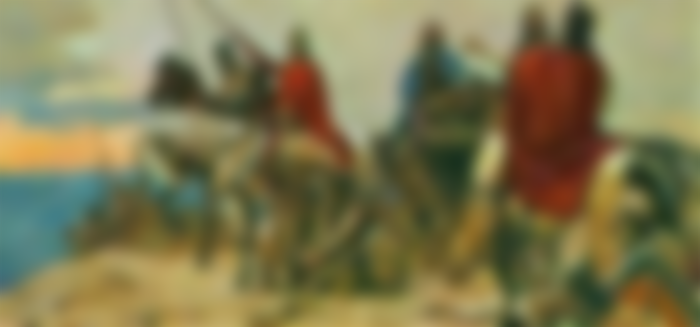Balint Terek was a Hungarian nobleman in the 16th century, military commander, ban of Belgrade and master of the hard Česnek and Subotica.

Participant in the battle of Mohács as commander of the king's bodyguard.
In matters concerning the inheritance of the crown, he sided with Ivan Zapolje, so Zapolje awarded him the title of captain of the whole of Lower Hungary.

In the efforts for his own estates, he conquered Subotica, expelled Ivan Crni (Jovan Nenad), the self-proclaimed Serbian emperor. Observing the situation in the kingdom, in the war around the throne in what was then Hungary, he sided with Ferdinand of Habsburg.
Over time, multiplying his possessions, he became the strongest landowner on the right bank of the Danube. He takes Sigetvar as the center of the newly acquired estates.


With his ambitious expansion, he brought instability in the kingdom, so Ferdinand increasingly refused his requests, which resulted in a strained relationship and eventually re-passed to King Zapolje.
Recent acquisitions made Balint Terek the most powerful and wealthy landowner in the country, taking advantage of the Reformation that was then spreading, he came to vast episcopal estates and fortifications. The culmination of his political career smiled on him in the role of one of the regents of the minor prince Ivan Zigmund.
In 1540 he protected the royal Buda, which was surrounded by the forces of Ferdinand of Habsburg, and successfully defended it. The following year, together with Cardinal Juraj Utješinović and the Ottomans, he again defeated Ferdinand's army under Buda.

At that time the Ottomans gradually took parts of the former Hungarian kingdom and set up their administration. Balint Terek ends up in Istanbul as a prisoner of war that no one advocates being released or redeemed. Sultan Suleiman saw in him a charismatic opponent, richer than kings, and whose loyalty could not be trusted.

His old rivals, the Zrinski family, tried to get his equally acquired old estates through politics.
Balint Terek died in 1550 in Istanbul, his grave is still unknown.
Although such an example of profiting at that time by changing sides in the war is not lonely, it gives us a cross-section of that time, opportunity and trouble, turbulent times with military leaders and masters whose greed and ambition often shaped the image of Hungary and Croatia.





